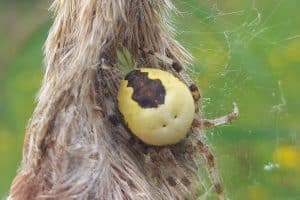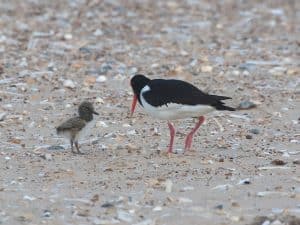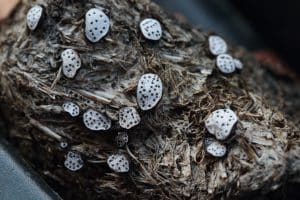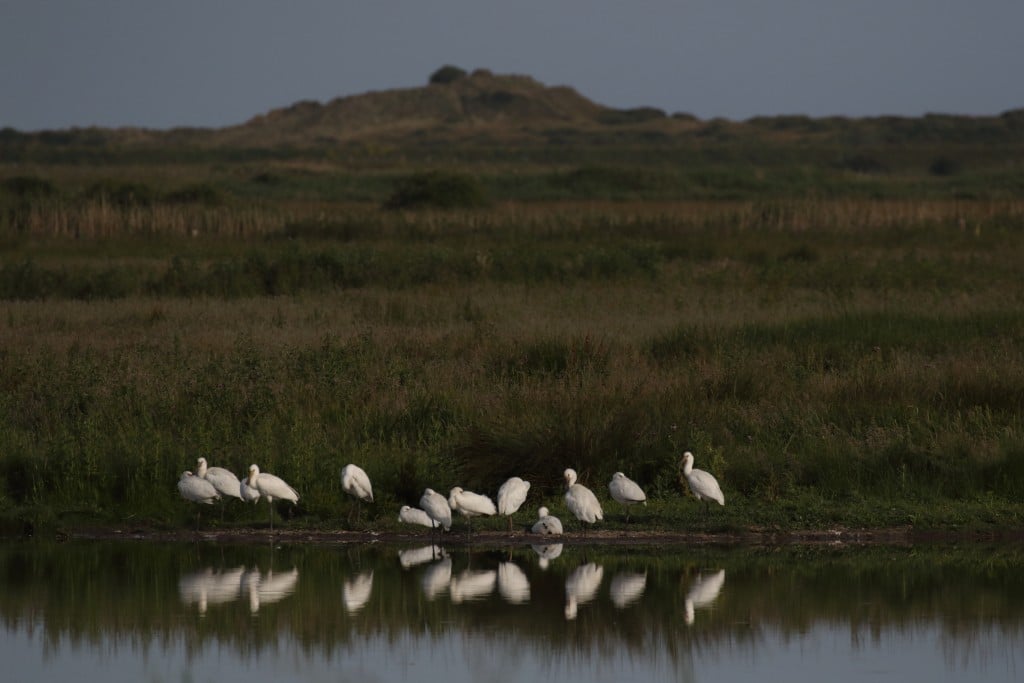
The Spoonbill – A Holkham Success Story
November 29, 2018 | WONDER | 7 minute read

Group of fledged Spoonbills on one of the grazing marsh pools at Holkham
Since my early days of watching and studying birds on Holkham Estate in the late 1970s there have been many changes to what can be seen. Some of that change is not unique to us, but part of a national trend. For various reasons some species have declined to the point of now almost being a fading memory resigned to the history books. Everyday species such as Tree Sparrows, Turtle Doves, Spotted Flycatchers, nesting Snipe, Yellow Wagtails and even the hordes of House Sparrows and Starlings that flocked to the autumn fields are sadly sights from the past. Changing landscape and farming practises, perilous migratory flights, hazards on sub –Saharan wintering grounds and climate change have all had a variety of effects on a variety of species.
It is not all sadness, however, for all the species we have lost, so there have been almost as many gains and some quite dramatic ones too. A walk through the marshes of Holkham in the 21st century is fast becoming more akin to some areas of the Mediterranean or near Continent. Thanks to more strenuous protection there linked to warmer winters and a greater abundance of prime habitat so birds like Little and Great White egrets, Spoonbills, Cetti’s Warblers, Marsh Harriers and Mediterranean Gulls have arrived and thrived in the UK. It is one of the great positives of climate change and the potential for more species to arrive is even greater – will the Black-winged Stilt, the Cattle Egret and the Glossy Ibis follow suit?
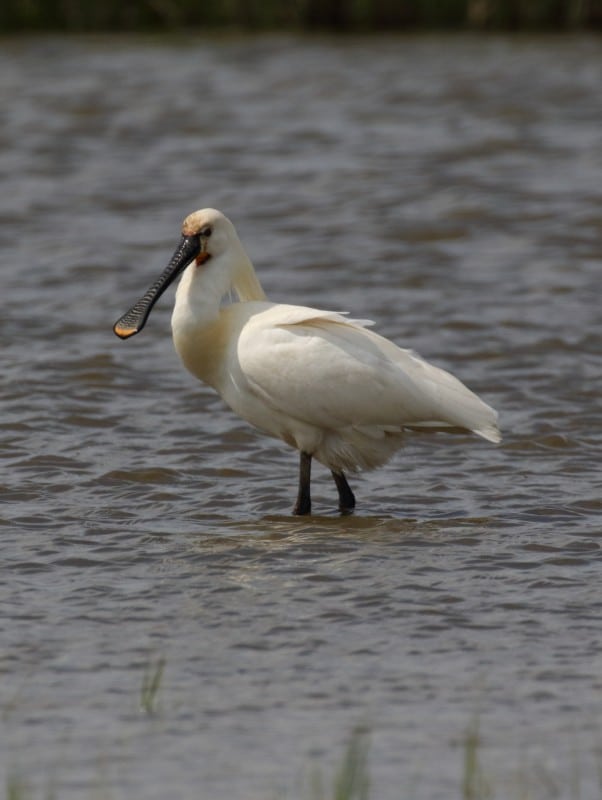
Its large spoon-like bill gives the bird its name. Old country names from the past included ‘shovelard’ and ‘Banjo Bill’ both in reference to it peculiar bill shape.
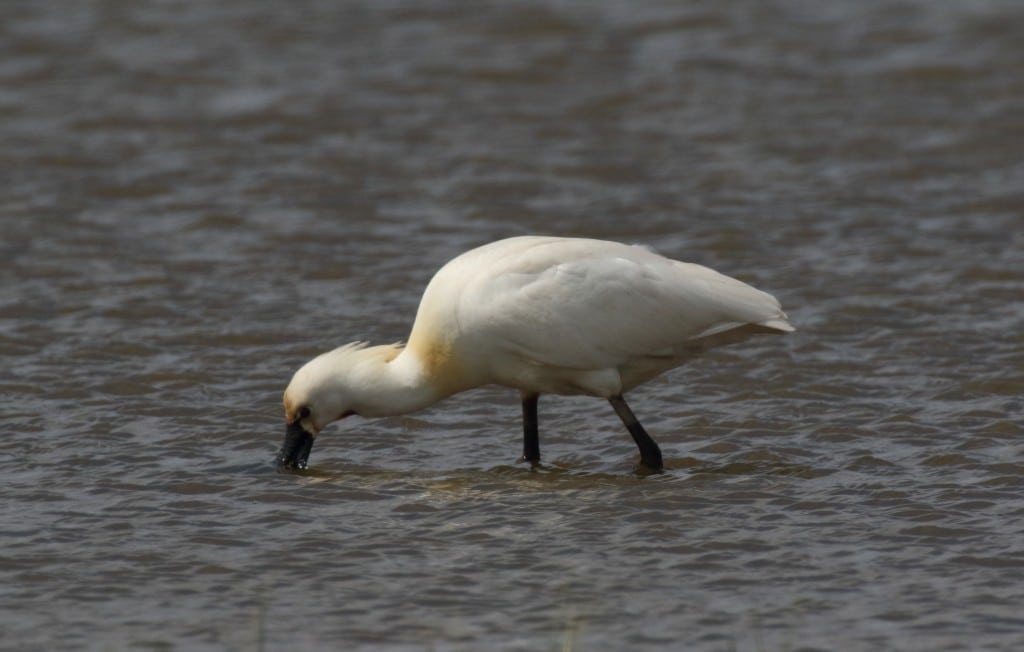
The bill has a sensitive tip, that is pushed through the water to filter out fish and crustaceans that it feeds from
The one species that has really become synonymous with Holkham in recent years is the Spoonbill. The Spoonbill is a large white heron-like species, standing three foot tall with a four foot wingspan that gets its name from it eight inch long bill with a flat spoon-like tip. It too has benefitted from warmer winters, increased protection and more feeding opportunities in Western Europe. Rather than being a new colonist to the UK, it is actually a species that is reclaiming its old haunts for it was a familiar sight in the medieval wetlands of southern England. Along with species such as the Crane and the Bittern, it was however hunted widely for grand feasts of the gentry alongside hunting for feathers and rare bird collectors.
By 1668 the last birds nested in Suffolk and it took close to 400 years before the Spoonbill returned to breed. Initially there were sporadic isolated nests from as far apart as south west Scotland and the Suffolk coast yet in 2010 what would at one time have been considered an impossible fantasy turned to reality when an actual colony formed on the marshes here at Holkham. In reality it was not quite that big a surprise as birds had been appearing and prospecting without success since the late 1990s. Yet in 2010 six pairs nested and produced 10 fledged juveniles, an amazingly successful event that instantly put Holkham in the record books and at the forefront of a revival for a once much persecuted species.
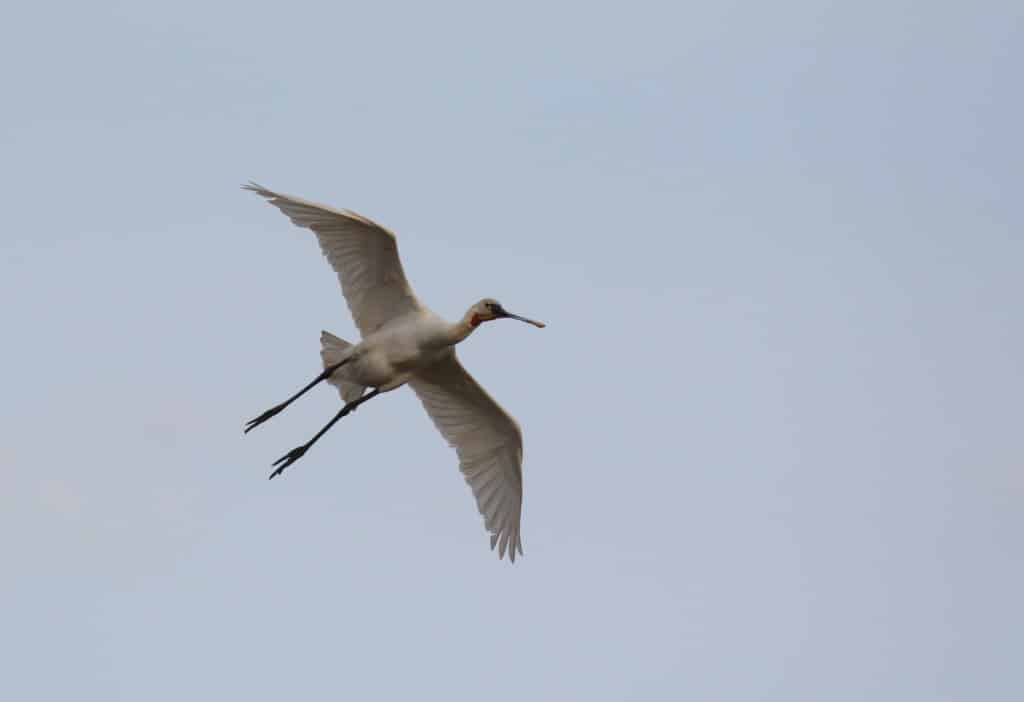
In the summer months, Lady Anne’s Drive is as good a spot as anywhere on the reserve to see a Spoonbill pass by overhead
Since then we have gone from strength to strength and seen the colony increase from six pairs to 28 this year. In that time we have produced an amazing 244 fledged youngsters. Within that same period only a single pair has nested at another site in the UK, so it could truly be said we are at the forefront of the UK Spoonbill recovery story. As our population has increased so has the wintering population in the UK, Dorset being the favoured locality. It really does seem like the Spoonbill is reaping the benefits of protection and better quality habitat and at the moment it looks like it will reclaim and perhaps even surpass its past status here in the UK – a definite story of success!
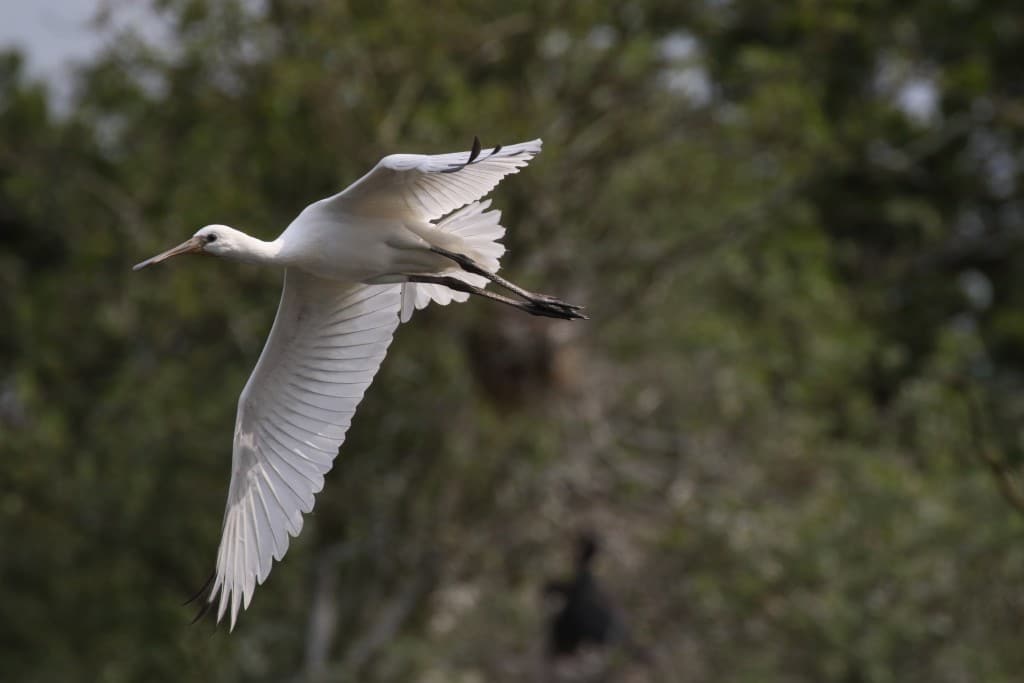
When juvenile Spoonbills first leave the nest their bills are much smaller, giving them the nickname of ‘teaspoons’
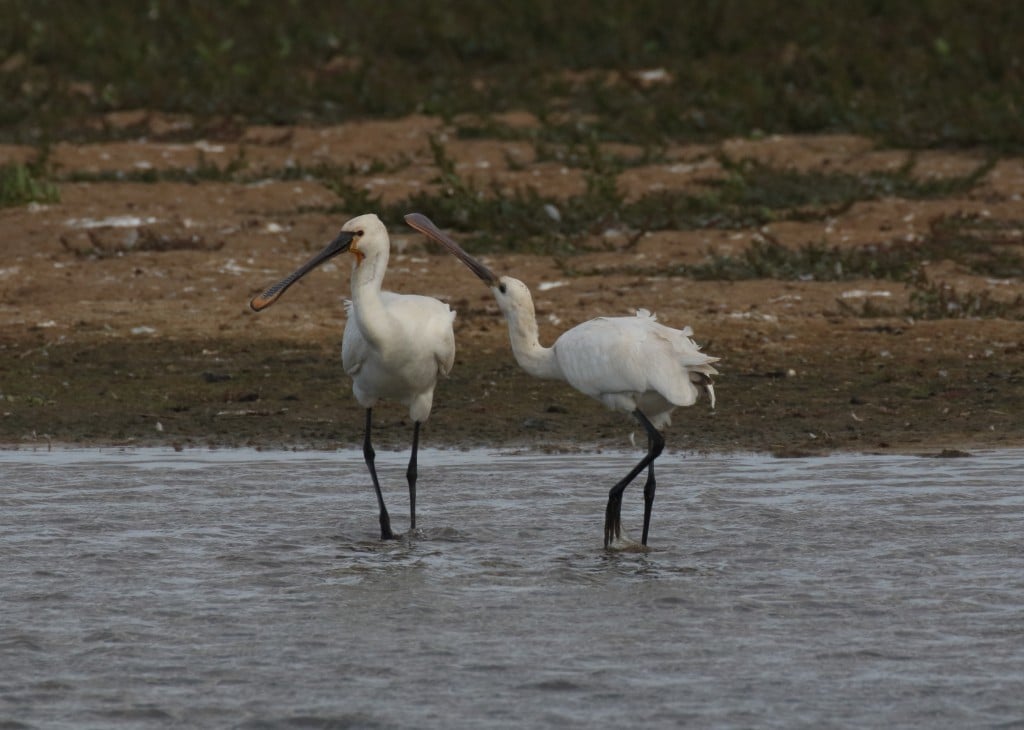
Juvenile Spoonbills constantly beg their parents for food even after fledging
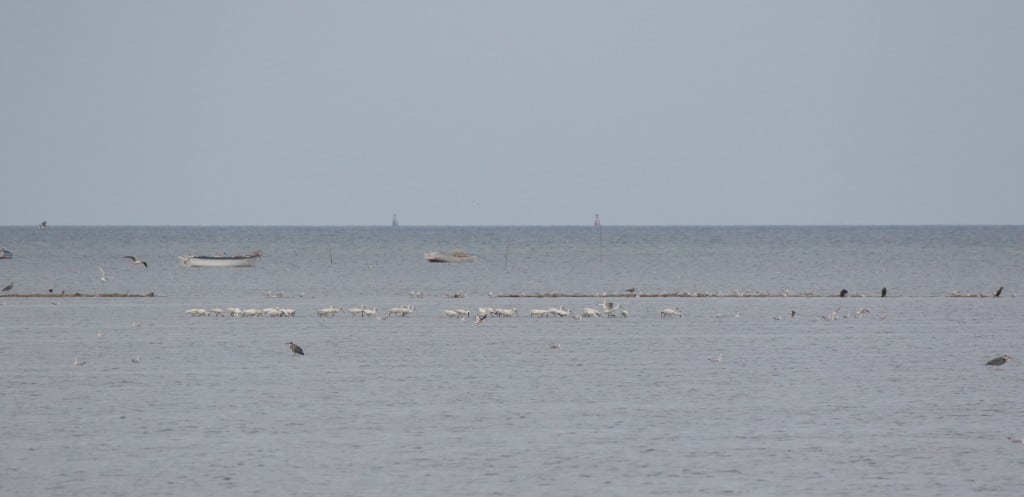
Gathering of wintering Spoonbills in the Mediterranean Sea off Tunisia
With all that in mind it was a great honour and privilege for me to be invited to a fantastic event in Tunisia held by the International Spoonbill Expert Working Group. As its name suggests it is a group of acknowledged international experts who study all aspects of Spoonbill behaviour, protection, migration and conservation. This year up to ten countries were represented and talks and ideas were exchanged on migration and wintering areas, survival rates of juveniles, the formation of new colonies and the problems that lay ahead for the conservation of the species. I was in a unique position that I was the only UK representative talking about Holkham and the only UK colony. So no pressure!…..yet I was very pleased to be able to present a meaningful and thought provoking discussion on aspects of the Spoonbill’s behaviour that had seemingly not been studied so far on the Continent. The event also allowed me to see Spoonbills on their wintering ground.
Spoonbills that breed in Italy and Hungry and alongside the Adriatic Balkan states migrate to spend the winter in Tunisia whilst the majority of Western Europe’s Spoonbills migrate south for the winter to West Africa via the Atlantic coast of Spain. All this is known thanks to the catching and marking of individual Spoonbills with either coloured numbered rings or in more recent times, satellite tags that allow precise movements and whereabouts to be known. The information presented by the international community was both fascinating and inspiring. There is much we could achieve here at Holkham with the study of Spoonbills yet for the moment we are content to know what a success we have had at Holkham and the fact that our colony is kick starting a recovery for the whole of the UK.
View all latest blog posts here.
Related journals
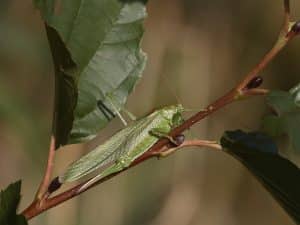
Conservation conversations: October 2025 on the Holkham National Nature Reserve
Nature news
Read more